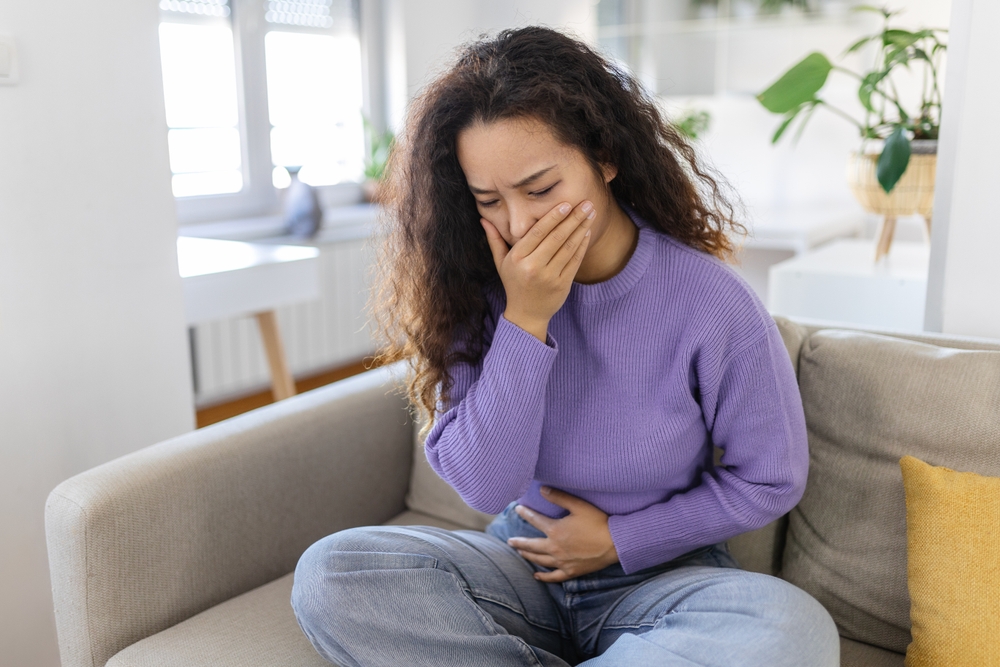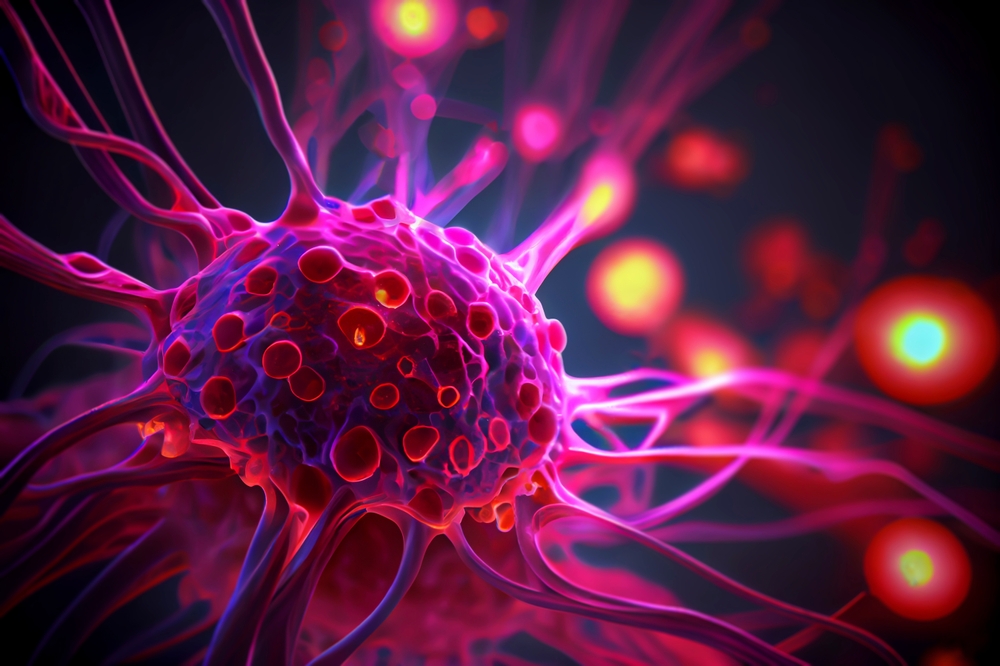12 Symptoms of Stomach Cancer Explained as 1000lb Sisters Star Katie Slaton Dies Aged 37
Last updated on
At 37 years old, Katie Slaton thought she had time. Time to continue building relationships with her famous cousins, Amy and Tammy from 1000lb Sisters. Time to be the “life of the party” that everyone remembers. Time to fight whatever was making her feel unwell.
But stomach cancer doesn’t respect age, fame, or optimism. Earlier this year, Katie received a diagnosis that would change everything: stage four gastric adenocarcinoma. The same type of cancer that affects 30,000 Americans annually had been quietly growing inside her, likely for months or years before symptoms appeared.
What happened next became a race against time that Katie ultimately couldn’t win. On August 25, her family announced the devastating news that she had lost her battle with cancer, leaving behind loved ones and a community that knew her as a force of nature.
Katie’s story represents more than celebrity tragedy. Hidden within her experience lies crucial information that could save lives. The symptoms she may have experienced mirror warning signs that millions of people dismiss as minor digestive issues every day.
Here’s what Katie’s loss can teach us about recognizing the signs of a cancer that often stays silent until it becomes deadly.
Reality TV Star’s Death Sparks Critical Health Awareness
Katie Slaton gained recognition through her appearances on TLC’s hit reality show 1000lb Sisters, where she supported her cousins Amy and Tammy Slaton through their weight loss journeys. Featured prominently in season five, Katie brought warmth and humor to the show that follows the sisters’ emotional battles with obesity and health challenges.
Behind the cameras, Katie faced her own health crisis that would prove far more serious than anyone initially realized. Her diagnosis came during a year when the show was documenting the family’s ongoing struggles with health and wellness, creating a tragic irony that underscored how quickly life can change.
The timing of her diagnosis and rapid progression to stage four cancer highlights a critical reality about stomach cancer: by the time symptoms become obvious enough to seek medical attention, the disease has often advanced beyond early treatment options.
Katie’s experience serves as a sobering reminder that cancer doesn’t discriminate based on age, lifestyle, or public profile. Her story could be anyone’s story, which makes understanding the warning signs essential for everyone.
From TLC Fame to Cancer Battle
Katie appeared on 1000lb Sisters during a period when the show focused on Tammy’s weight loss rehab journey. Viewers came to know her as a supportive family member who brought levity to difficult situations and demonstrated genuine care for her cousins’ well-being.
Her cancer diagnosis represented a shocking turn that family members struggled to process. Gastric adenocarcinoma, the specific type of cancer Katie faced, develops from gland cells in the stomach’s innermost lining and represents between 90 and 95 percent of all stomach cancers.
The progression from diagnosis to death occurred within months, illustrating how aggressive advanced stomach cancer can be. Katie underwent chemotherapy treatments, but stage four cancer presents significant treatment challenges that often limit options for recovery.
Her family’s public sharing of her diagnosis and death brings important awareness to a disease that many people know little about until it affects them directly.
The “Life of the Party” Who Fought Until the End

Family members remembered Katie not just as a reality TV personality, but as someone who brought joy and energy to every gathering. Her cousin Amanda Halterman shared the heartbreaking news on social media, providing insight into Katie’s character and impact on those who loved her.
“It is with a completely crushed heart and spirit that I have to post this. My little cousin went to sit at the feet of Jesus yesterday. She was a force to be reckoned with and showed love that was accepting and given freely. She was the life of the party and my best friend,” Amanda wrote in her tribute.
Katie’s battle with cancer occurred largely outside public view, with family members providing updates about her treatment and condition. The privacy surrounding her illness reflects how personal and difficult cancer journeys become for patients and their loved ones.
Her death on Monday, August 25, marked the end of a fight that began with what may have seemed like minor digestive complaints but evolved into a life-threatening disease that claimed her life within months of diagnosis.
The Silent Killer Most People Ignore
Stomach cancer earns its reputation as a silent killer because early stages rarely produce recognizable symptoms. Mayo Clinic research confirms that “stomach cancer doesn’t always cause symptoms in its early stages,” with signs often not appearing until the disease reaches advanced stages.
Annual statistics reveal that approximately 30,000 Americans receive stomach cancer diagnoses each year, representing about 1.5 percent of all new cancer cases nationwide. These numbers might seem small compared to more common cancers, but they represent thousands of families facing devastating diagnoses.
The adenocarcinoma type that claimed Katie’s life develops specifically from mucus-producing cells in the stomach’s inner lining. Cancer cells multiply rapidly and can invade surrounding tissue before patients experience noticeable symptoms.
Early detection significantly improves treatment outcomes, but the lack of obvious early warning signs means many patients receive diagnoses only after cancer has spread beyond the stomach to other organs or lymph nodes.
The 12 Warning Signs Your Stomach Is Trying to Tell You Something

Medical experts have identified twelve key symptoms that may indicate stomach cancer development. These symptoms often appear gradually and may be mistaken for common digestive issues, making awareness crucial for early detection.
Understanding these warning signs could mean the difference between catching cancer in treatable early stages versus facing advanced disease like Katie experienced. While having these symptoms doesn’t automatically indicate cancer, persistent or worsening symptoms warrant medical evaluation.
The twelve symptoms span different aspects of digestive function, appetite, energy levels, and physical comfort. Recognizing patterns among multiple symptoms becomes particularly important, as isolated symptoms may have benign explanations.
Each symptom represents your body’s attempt to signal that something isn’t functioning normally. Learning to recognize and respond to these signals appropriately could potentially save your life.
Digestive Red Flags That Demand Medical Attention
Three primary digestive symptoms serve as early warning signs for stomach cancer: difficulty swallowing, persistent indigestion, and persistent heartburn. These symptoms often develop gradually, making them easy to dismiss or attribute to dietary choices.
Difficulty swallowing may begin with occasional discomfort when eating certain foods, but can progress to problems with liquids as well. This symptom occurs when tumors interfere with normal swallowing mechanisms or when cancer spreads to areas affecting the esophagus.
Persistent indigestion differs from occasional stomach upset by its frequency and resistance to typical remedies. When antacids, dietary changes, or over-the-counter medications fail to provide lasting relief, further medical evaluation becomes necessary.
Persistent heartburn that doesn’t respond to standard treatments may indicate cancer development near the gastroesophageal junction, where the esophagus meets the stomach. This location represents the most common site for stomach cancer in the United States.
Nausea, Vomiting, and Appetite Changes That Aren’t Normal

Stomach cancer frequently affects appetite and digestive comfort in ways that patients initially attribute to stress, dietary changes, or minor illness. Four symptoms in this category deserve particular attention: nausea, vomiting, loss of appetite, and feeling full after eating small amounts.
Nausea associated with stomach cancer tends to be persistent rather than episodic, often occurring regardless of food intake or meal timing. Unlike temporary nausea from flu or food poisoning, cancer-related nausea may continue for weeks without a clear cause.
Vomiting becomes concerning when it occurs repeatedly without obvious triggers like illness or food sensitivity. Cancer-related vomiting may contain blood in advanced cases, creating additional urgency for medical evaluation.
Loss of appetite represents one of the more subtle warning signs, as patients may not immediately recognize changes in their desire for food. When favorite foods lose their appeal or normal hunger signals disappear, cancer may be affecting the digestive system function.
Feeling full after eating only small amounts, known medically as early satiety, occurs when tumors take up space in the stomach or interfere with normal gastric expansion during meals.
Pain, Bloating, and Discomfort Your Body Can’t Explain
Physical discomfort from stomach cancer typically manifests as abdominal pain and post-meal bloating that differs from normal digestive sensations. These symptoms may initially seem minor but tend to worsen over time as cancer progresses.
Abdominal pain associated with stomach cancer often occurs in the upper abdomen and may radiate to the back or chest. Unlike pain from overeating or gas, cancer-related discomfort typically doesn’t resolve with typical remedies or position changes.
Post-meal bloating becomes concerning when it occurs consistently, regardless of meal size or food type. Normal bloating typically relates to specific foods or eating patterns, while cancer-related bloating may happen even with small, bland meals.
The location and timing of pain can provide important diagnostic clues. Pain that worsens at night, doesn’t respond to antacids, or occurs hours after eating may indicate serious underlying problems requiring medical evaluation.
When Your Body Starts Breaking Down

Two systemic symptoms often appear as stomach cancer advances: unexplained weight loss and extreme fatigue. These symptoms indicate that cancer is affecting your body’s overall function rather than just local digestive processes.
Unexplained weight loss occurs when cancer cells consume energy and nutrients, preventing normal weight maintenance despite adequate food intake. Weight loss of 10 pounds or more without dietary changes or increased exercise warrants immediate medical attention.
Extreme fatigue associated with cancer differs from normal tiredness by its severity and persistence. Cancer-related fatigue doesn’t improve with rest and may interfere with daily activities that previously required minimal effort.
These symptoms often appear together as cancer progresses, creating a cycle where fatigue reduces appetite and poor nutrition worsens fatigue. Early recognition and medical intervention can help break this cycle before it becomes life-threatening.
Black Stools Nobody Wants to Discuss
Black or tar-like stools represent one of the most serious stomach cancer warning signs, indicating internal bleeding that requires immediate medical attention. This symptom occurs when blood from stomach tumors mixes with digestive acids, creating the characteristic dark appearance.
Unlike bright red blood that might indicate minor issues like hemorrhoids, black stools suggest bleeding high in the digestive tract. The dark color results from blood being partially digested as it moves through the intestinal system.
Patients may not immediately recognize the significance of stool color changes, especially if changes occur gradually. However, this symptom indicates advanced cancer that has begun affecting blood vessels within the stomach.
Anyone experiencing black, tar-like stools should seek immediate medical evaluation regardless of other symptoms. This sign indicates active bleeding that can become life-threatening if left untreated.
Who’s Really at Risk for Stomach Cancer?

Understanding risk factors can help individuals and healthcare providers identify people who need closer monitoring for stomach cancer symptoms. Age represents a significant factor, with most cases occurring in people over 50, though Katie’s death at 37 demonstrates that younger people aren’t immune.
Dietary patterns strongly influence stomach cancer risk. Diets high in salty, smoked, or pickled foods increase risk, while diets rich in fresh fruits and vegetables provide protection. Geographic regions with traditional preservation methods show higher stomach cancer rates.
Helicobacter pylori bacterial infections cause chronic stomach inflammation that can lead to cancer development. This common infection affects millions of people worldwide and can be treated with antibiotics when detected early.
Family history and genetic factors also influence risk levels. People with relatives who had stomach cancer or certain genetic syndromes may need earlier or more frequent screening than the general population.
Turning Tragedy Into Health Awareness
Katie Slaton’s death at 37 serves as a powerful reminder that stomach cancer can affect anyone, regardless of age or circumstance. Her story highlights the importance of taking digestive symptoms seriously and seeking medical evaluation when concerning signs appear.
By sharing information about stomach cancer symptoms and risk factors, Katie’s experience can potentially save other lives through increased awareness and earlier detection. Her family’s openness about her diagnosis and death contributes to broader public health education.
The American Cancer Society provides support and information for people concerned about cancer symptoms or diagnosis. They offer 24/7 support through their helpline at 1-800-227-2345 and live chat services for anyone needing guidance or assistance.
Katie’s memory lives on not just in the hearts of family and friends, but in the lives that might be saved through greater awareness of stomach cancer warning signs and the importance of early medical attention for concerning symptoms.
Some of the links I post on this site are affiliate links. If you go through them to make a purchase, I will earn a small commission (at no additional cost to you). However, note that I’m recommending these products because of their quality and that I have good experience using them, not because of the commission to be made.




























 JOIN OVER
JOIN OVER
Comments